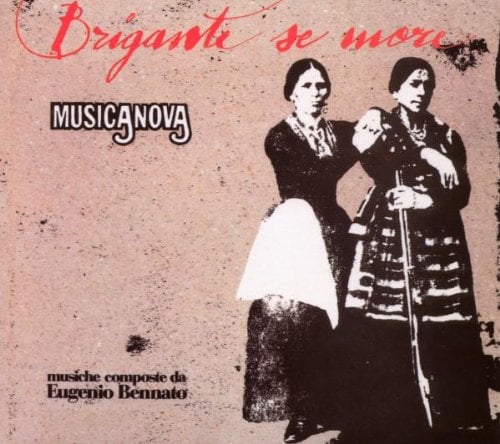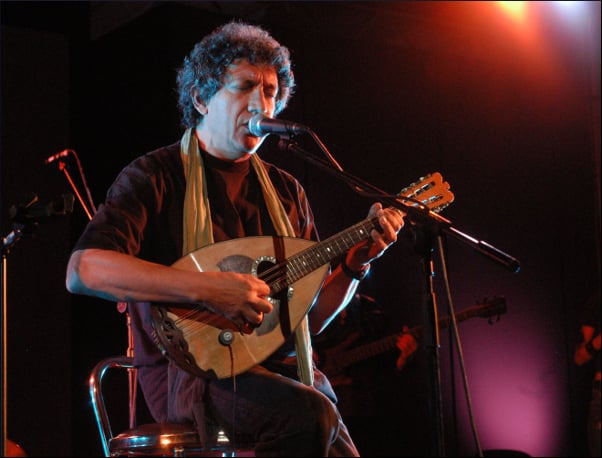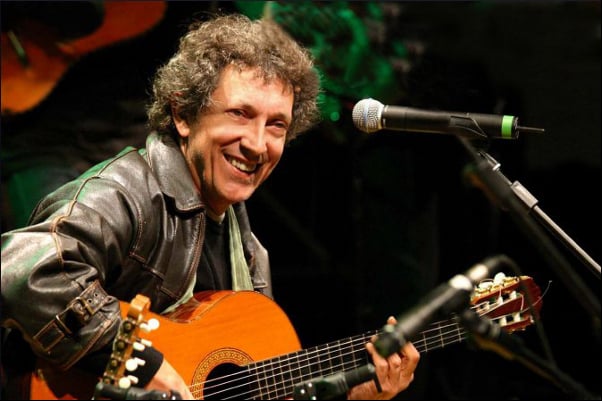
- Brigante se more
- Released in: 1973
A traditional folk song inspired by brigands, groups of “rebels” who used to live in the wild southern countryside of Italy and who were usually “against the system.”

A traditional folk song inspired by brigands, groups of “rebels” who used to live in the wild southern countryside of Italy and who were usually “against the system.”
“Brigante se more” is a famous ballad written by Eugenio Bennato and released by Musicanova, his band, in 1973. It’s a traditional folk song from the south of Italy, inspired by brigands. A long time ago, brigands were groups of “rebels” who used to live in the wild southern countryside and who were usually “against the system.” The brigandage phenomenon expanded throughout the region during the 18th century, under the Spanish Bourbon hegemony.
The song is about brigands, but it could also have been a typical melody sung by actual brigands, as they are believed to have found in music a medium of expression and, obviously, relaxation. “Brigante se more” is characterized by a linear structure and rhythm – mainly two guitar chords, percussions, tambourines – and easy and immediate lyrics. It embraces different topics, among them love, freedom, and identity.

The song is a sort of brigand battle hymn, as the lyrics describe how these men have to take a “schuppetta” (shotgun) to set their lands free from invaders. At the time, these invaders were the aforementioned Bourbons or the “o piemuntees,” people from Piedmont, who played a great role during the Risorgimento and the “unification” of Italy during the 19th century. Brigands were ready to lose their liver to defend their land. As the song remarks in the seventh and eight verses, “Nun ce ne fott' do' re Burbone.” The phrase “nun ce ne fott” is typically used in Campania and Basilicata – both regions in southern Italy – to say, “We don’t care” (in this case, about the Bourbon king). The lyrics go on to say, “A terra è a nosta e nun s'ha da tuccà,” which in regular Italian would read, “La terra è a nostra e non si deve toccare” (This is our land and no one else can take it). In “tuccà” we can recognize an apocope – the dropping of one or more sounds at the end of a word – like in almost all infinitive verbs, a peculiarity that’s common to all dialects in the South.
“Brigante se more” is also a love chant. Brigands are seen as romantic figures, loved by “Femm'na bell'” (beautiful women) who “ca dat' lu cor se 'stu brigant' u vulit' salvà” (give their hearts to save brigands) as they escape. But these men cannot fall in love: they are quite aware of the risks of being a brigand. As the title says, “Omm' se nasce brigante se more.” Once someone is a brigand, he cannot go back: he must also die a brigand. With this song, Eugenio Bennato – a researcher of local sounds, music, and traditions – reproduced a typical brigand freedom chant. Today, “Brigante se more” is well-known in Italy. Yet, curiously enough, many people who have never heard of the author perhaps think this is a genuine “popular song” from the 18th century, because it really does evoke the atmosphere of the past!
